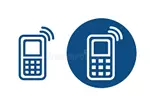Nicvd Contact Number
Filter Type: All Time (3 Results) Past 24 Hours Past Week Past month Post Your Comments?
Listing Results Nicvd Contact Number
Heart crisis: Abid Ali’s cardiac condition raises alarm bells

Pakistan Test cricketer Abid Ali has been in the news lately, but for all the wrong reasons. The right-handed has been recently diagnosed with a particular heart condition namely ‘acute coronary syndrome’. Senior Cardiologist Dr Sohail Khan from the National Institute of Cardiovascular Diseases (NICVD), while talking to BOL News, said that such a condition …
Preview / Show more
Updated: 1 hours ago
See Also:Cardiac Science Customer Service, Ibrahim Cardiac Contact Number, Show details
Welcome to NICVD

National Institute of Cardiovascular Diseases (NICVD) is a State of the Art Institute for the treatment of cardiovascular diseases in Bangladesh. The institute was established in 1978 with the aim of establishing modern cardiovascular care services in the country and to develop trained manpower in this field for the need of the country.
Preview / Show more
Updated: 4 hours ago
See Also: Show details
Video: Karachi nurses take to the streets - SAMAA

Audit copy of four-tier formula of nurses at JPMC and NICVD Earlier this year, nurses in Karachi took to the streets over the non-provision of health allowances by …
Preview / Show more
Updated: 5 hours ago
See Also:Samaa News Phone Number, Safe Streets Phone Number, Show details
All Time (3 Results)
Past 24 Hours
Past Week
Past month





Please leave your comments here:
- Contact List Found
- Filter Type
- All Time
- Past 24 Hours
- Past Week
- Past month
Frequently Asked Questions
What is NICVD known for?
ABOUT NICVD. Since its inception in 1963, the National Institute of Cardiovascular Diseases (NICVD) has played a pivotal role in caring for patients with heart disease in Pakistan. NICVD is the first tertiary cardiac care institute in South Asia as well as the flagship facility for cardiology in Pakistan with a focus on superior care for patients.
How many patients does NICVD receive per day?
Coordinating with local ambulance services in the city of Karachi, we receive and tend to an average of 600 patients per day. Amongst a host of cardiac related treatments, NICVD specialises in the field of Paediatric Procedures, Interventional Procedures and Non-Interventional Procedures.
How is the emergency department at NICVD?
The emergency department at NICVD is accessible 24 hours, 7 days a week and consists of separate areas for males and females. Coordinating with local ambulance services in the city of Karachi, we receive and tend to an average of 600 patients per day.